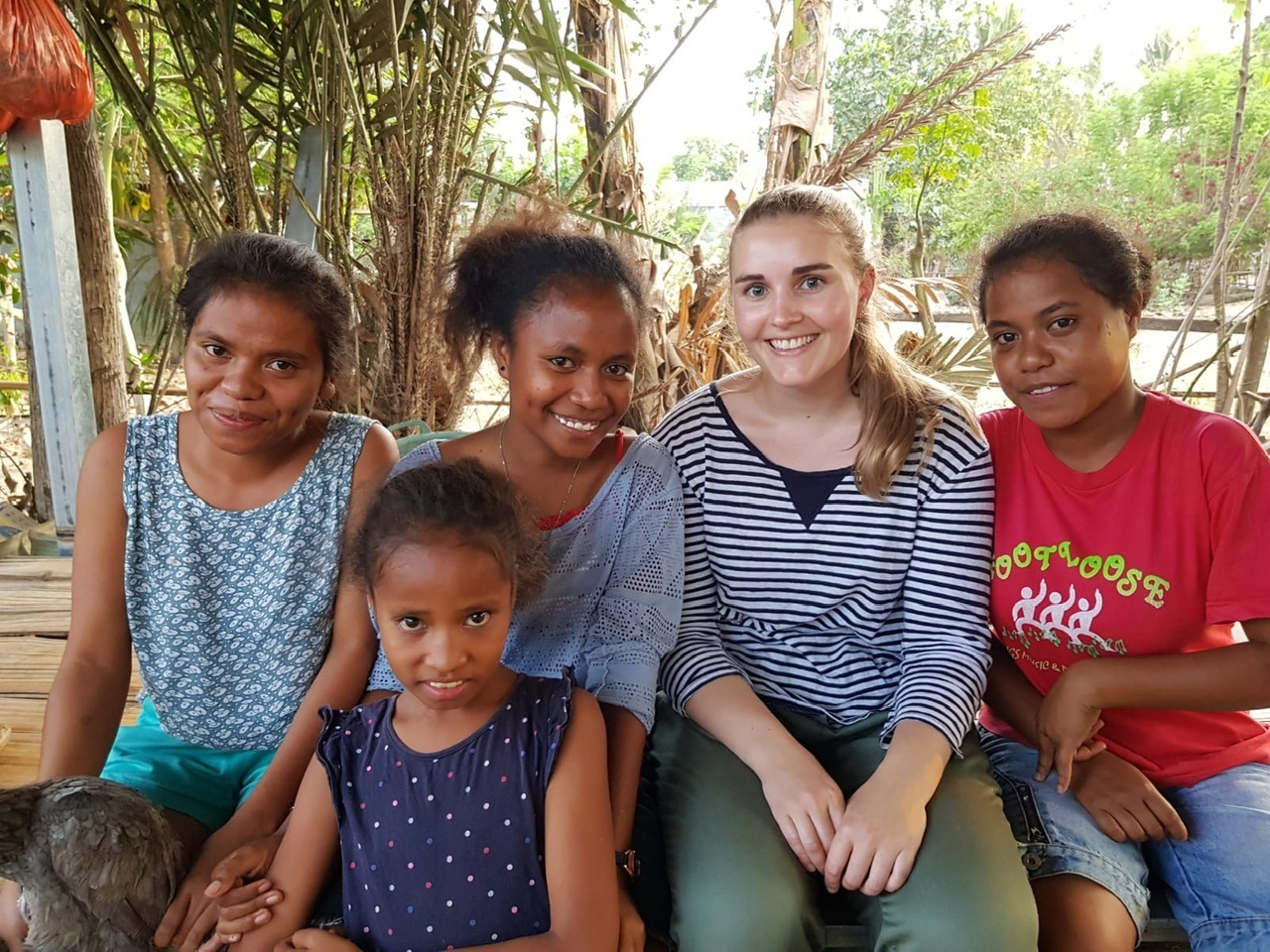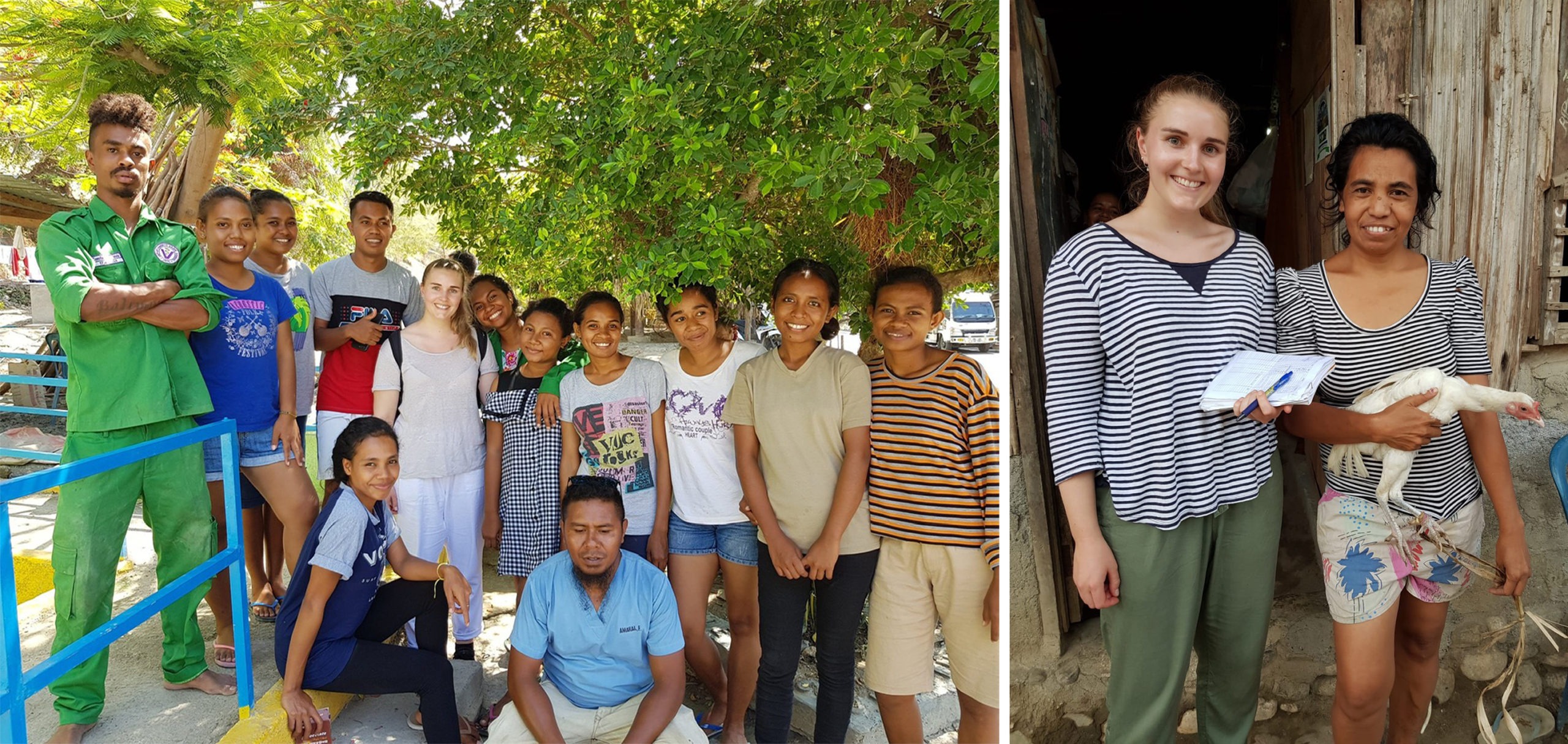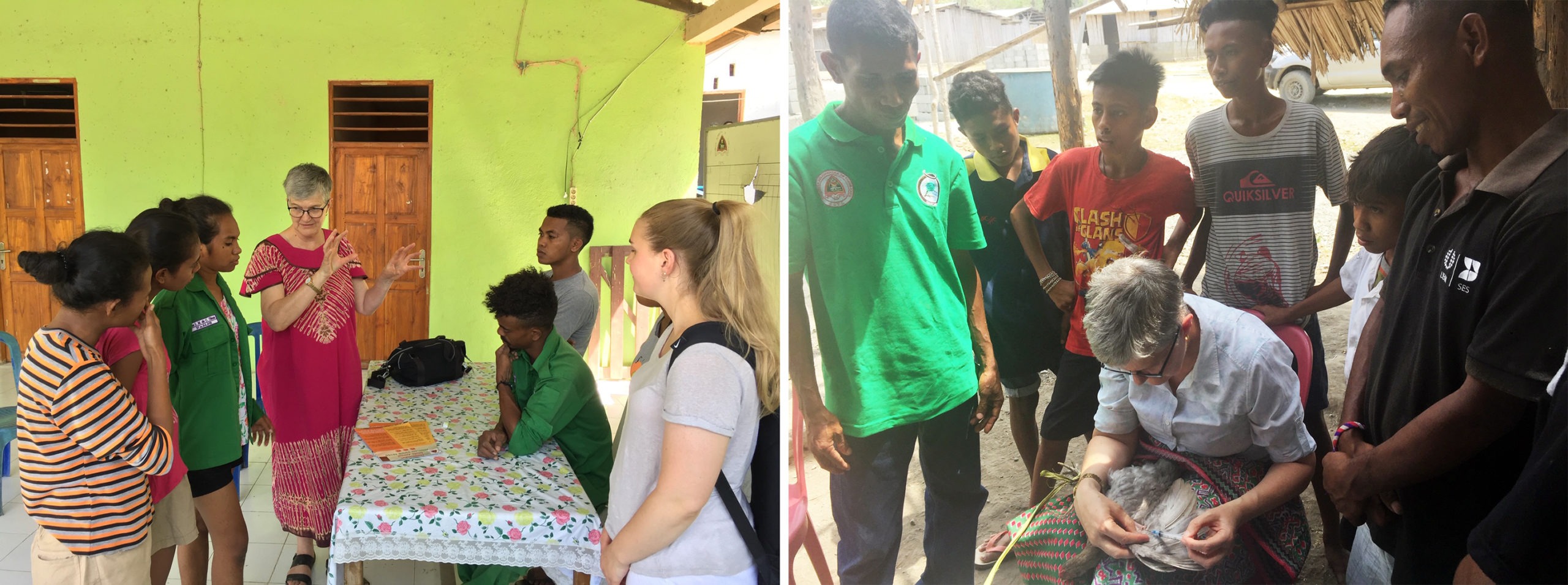

Improving maternal and child nutrition in Timor-Leste
May 5, 2020
As part of our concerted efforts to support and encourage the next generation of Australians in study, careers and volunteering in international agricultural research, the Crawford Fund State Committees proudly support our Student Awards.
Our 2020 Student Awards are currently open! They are available for university students from every State and Territory so check out the backgrounder and apply online before 26 June 2020.
These awards allow university students from around Australia to include an international component to their studies, to travel to their host countries to research and explore their chosen topic areas and gain international agricultural research experience and expertise.
Throughout 2019, we have enjoyed sharing the journey of our 2018 recipients of these Awards and their experiences have been diverse and overwhelmingly positive. They are available here.
We now proudly present to you reports from our 2019 cohort as they complete their travels and research. A sample of reports from each State include Jori Bremer from the University of New England; Sam Coggins from the Australian National University; Daniel Waterhouse from Murdoch University; Cassandra Davitt from the University of Melbourne; Oliver Gales from the University of Tasmania and, most recently Rebekah Ash from the University of Queensland.
Anna Mackintosh, who is studying a Bachelor of Agricultural Science at the University of Tasmania, used her Crawford Fund Student Award to travel to Timor-Leste last year to work on a project targeting improved maternal and child nutrition through nutrition-sensitive agriculture, with support from the Kyeema Foundation. This is a summary of her experience.
Timor-Leste is one of the youngest countries in the world and has one of the highest global rates of malnutrition because food supply from the agricultural sector does not meet food and nutrition demands, and as a consequence, over half of all children under five suffer from chronic malnutrition and subsequent stunting. This issue is a direct result of the devastating war that occurred prior to independence in 2002.
During her time in Timor-Leste, Anna worked alongside the NSW Crawford Fund Committee’s Dr Robyn Alders, who is also Chair of the Kyeema Foundation, and representatives from the Ministry of Agriculture and Fisheries (MAF) in Dili to design a masterclass to address this systemic issue.
“The masterclass brought together representatives from the MAF, the Ministry of Health, the National University of Timor-Leste, the Food and Agriculture Organisation of the United Nations, and local and international non- governmental organisations. This was a wonderful opportunity to work in a multidisciplinary team and collaborate with experts in such a wide range of fields.”

With eighty per cent of the population of Timor-Leste being subsistence farmers, the population is highly dependent on annual crop yields to feed their families. However, cropping is not always feasible in some ecosystems, so the role of livestock becomes even more important as the primary food source. Livestock production however has its own challenges.
In Timor-Leste, poultry has been threatened by the virulent Newcastle Disease, an acute respiratory infection. The dedication of local and international veterinarians to combatting Newcastle Disease in Timor-Leste is crucial as this disease is not only threatening food security in regions where cropping is not appropriate, but also the overall improvement in nutrition of the Timorese people. Dr Alders is involved in on-going work in this area.
Anna and the other project participants travelled to the city of Viqueque to discuss ways to combat the transmission of Newcastle Disease in village chickens with farmers.
According to Anna, one special thing about village poultry is that they are often the only livestock that women have some say over. It is estimated that women could increase the yields on their farm by 20-30 per cent if they had the same access to resources as men.
“Learning the potential that agriculture offers to improve the standard of living in developing countries was an incredible opportunity and speaking directly with farmers was an invaluable experience that allowed me to understand the major challenges they face,” she said.
“I thoroughly enjoyed my experience learning and engaging in international agricultural development and capacity building and am extremely grateful to the Crawford Fund for their generous support,” said Anna.

“I learnt through working with Robyn and the Timorese community that international development is more about mentoring and offering support to scientists and farmers rather than being the ‘hero’. Equally, the success of working in-country is highly dependent on the level of trust that is formed between you and the local community,” said Anna.
“As a young agricultural scientist, this experience developed my skills working in-country and confirmed my interests in this sector. My eyes were opened to international agriculture during my first year at university and it was through the sense of social justice that my interests grew strongly. I decided that I had been very fortunate to have such a great education and that I should share it with others. However, it wasn’t until I received support from the Crawford Fund to travel and work in-country that I could confirm my interests in this area,” she said.
“I am extremely grateful to both Robyn Alders and the Crawford Fund for their generous support, which provided funds to travel in-country, conduct this important research and develop my skills working in international development,” Anna concluded.
Anna has spoken about her experience through her university, and on ABC radio.





 0
0